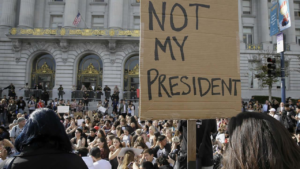
On June 24, 2022, the Supreme Court of the United States ruled in Dobbs v. Jackson Women’s Health Organization that the Constitution does not “confer a right to abortion.” Dobbs formally overturned Roe v. Wade, ending a decades-long struggle for anti-abortion activists. Without federal protection for abortion, 26 states currently have laws restricting abortion to varying degrees. Bans and restrictions on abortion disproportionately affect women of color, worsening existing problems including limited access to healthcare including contraception and higher rates of pregnancy mortality.
In recent weeks, pro-life supporters have pushed for the ban of medication abortion, in addition to abortion procedures. On March 17, 2023, Wyoming became the first state to outlaw “the use of pills for abortion.” A Texas state court Judge, Matthew J. Kaesmaryk, is expected to issue a preliminary ruling that could order the U.S. Food and Drug Administration to rescind federal approval of mifepristone, a widely used abortion pill.
Kacsmaryk previously ruled in December 2022 that “allowing minors to obtain free birth control without parental consent at federally funded clinics, under a program known as Title X, violated parental rights and state law.” His decision included Catholic catechisms and other religious texts as justification—a dangerous blurring of church and state. The religious freedom argument, as used by plaintiff Alexander Deanda, is reflective of broader pro-life arguments. This case reveals birth control to be the next target of the pro-life movement. Unfortunately, this threat to access to birth control goes beyond the state of Texas.
In his concurring opinion to Dobbs, Justice Clarence Thomas encouraged the revision of other Supreme Court decisions surrounding “Fourteenth Amendment jurisprudence” including Lawrence v. Texas, Obergefell v. Hodges and Griswold v. Connecticut, the right of married persons to obtain contraceptives – eventually expanded to all women.
The 1965 Griswold ruling was made based on the inference of a right to privacy and the fact that “substantive as well as procedural, protection for ‘liberty’” is included in the Fourteenth Amendment’s Due Process Clause. Subsequent decisions about reproductive rights, including Roe v. Wade, have followed the same pattern. However, the Dobbs decision rejected precedent on Fourteenth Amendment case law.
The Court set a new precedent for determining “liberties” or rights not included in the Constitution; a right must be “deeply rooted in [our] history and tradition.” The decision determined that the right to abortion was not historically entrenched, underscoring the criminalization of abortion and remarking that until Roe, no state or federal court recognized such a right.
The Court’s rationale is flawed—just because there was no law protecting the right to abortion, that does not mean that abortions did not take place. Further, simply because a right was not defined at the time, that does not mean that such a right does not exist. As the Dobbs ruling itself notes, the Court can be wrong; Plessy v. Ferguson, a decision saying racial segregation is constitutional, was “egregiously wrong” and on a “collision course with the Constitution from the day it was decided.” In this case, segregation was considered constitutional until Brown v. Board of Education in 1954. Like abortion, desegregation was not supported by laws or considered a right until relatively recently.
The flawed logic of Dobbs, however, is now precedent and that precedent threatens the right to contraceptives like the birth control pill established in Griswold. Lawmakers are aware of this danger. In 2022, the House of Representatives introduced and passed H.R. 8373, or the Right to Contraception Act. H.R. 8373, defines the right to contraception as “a fundamental right, central to a person’s privacy, health, wellbeing, dignity, liberty, equality, and ability to participate in the social and economic life of the Nation.”
As of July 21, 2022, the Act was received in the Senate, but no further action has been taken. As states like Texas begin to restrict access to birth control, it is vital that the Senate passes the Right to Contraception Act in case Griswold is overturned like Roe. Currently, 17 states bar abortion clinics from receiving public contraception funds, affecting low-income patients.
Autonomy over our bodies is a basic liberty. Freedom of religion also means freedom from religion and using past laws from a deeply discriminatory history is inane. America prides itself on being the land of the free and the Ninth Amendment acknowledges the existence of rights not enumerated in the Constitution. Isn’t it better to have more liberty than less?



